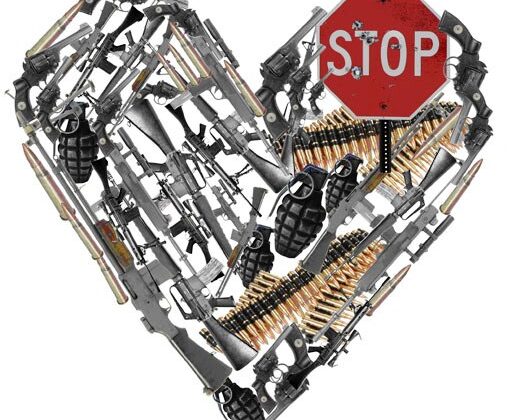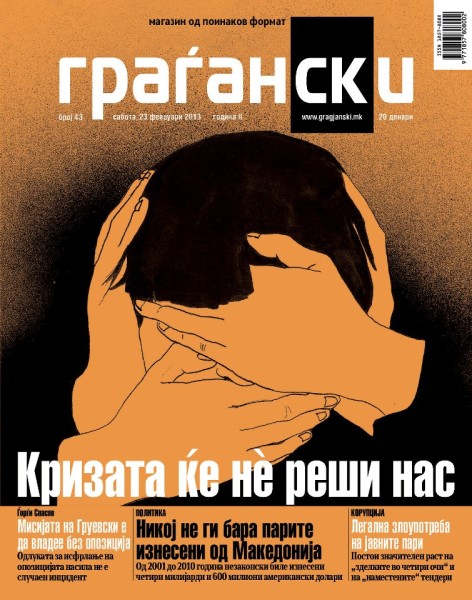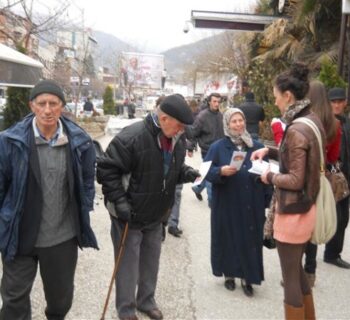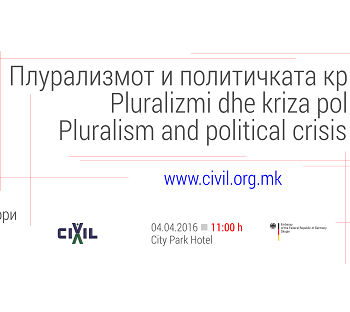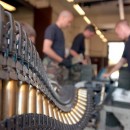Swift, serious, consistent and long-term multidisciplinary action is needed for the society to heal and to overcome the culture that approves of hatred and prejudice, to the end of finally overcoming violence and gun culture.
 Amidst extensively strained political and clan clashes and lack of sobriety and ideas in the programs of the ones aspiring to power, all that combined with the existence of massive quantities of weapons and lowered tolerance levels in the society on all count; it may well be expected that the election process will be marred by incidents, violence and use of weapons. Hence, we consider it important to remind of few facts and conditions concerning weapons in the country, particularly regarding the presence of illegal weapons and their influence on the society.
Amidst extensively strained political and clan clashes and lack of sobriety and ideas in the programs of the ones aspiring to power, all that combined with the existence of massive quantities of weapons and lowered tolerance levels in the society on all count; it may well be expected that the election process will be marred by incidents, violence and use of weapons. Hence, we consider it important to remind of few facts and conditions concerning weapons in the country, particularly regarding the presence of illegal weapons and their influence on the society.
No one can really determine the quantity of smuggled weapons on a black market; however, there is always the possibility for a rough estimate. Irrespective of the figures and the presence of weapons, the one thing I deem more dangerous than its material presence in the society is the mere fact that readiness to use those weapons is ever-growing, even in downright absurd and ridiculous life situations. This is exactly the area where we need to focus our actions - how to overcome gun and violence culture, namely, to offer different solutions for people's problems. It can be done by strengthening public awareness, but also by building trust on at least two levels: between institutions and citizens, as well as between the various ethnic communities in the country.
The growing trend of holding, carrying and using weapons is utterly worrisome. Weapons are frequently used as "communication tool", or as a tool for intimidation, blackmail, and permanent threat to the ones thinking differently from the weapon holders.
There is more than one motive for owning and using weapons, but in wider context, those motives can be broken down to three categories: gun culture, increasing political and social insecurity and radicalization of inter-ethnical relations. All of these are mutually intertwined, subject to changes, but also exerting strong negative influence on people's culture, safety and on the inter-ethnical relations.
With regard to gun culture, in the beginning, the responsibility is in the hands of parents; but later, as children grow, responsibility continues to be in the hands not only of the educators, but also of the whole society, state and local governmental institutions, as well as political parties.
Frequent use of weapons is consequence of a strong gun culture, an area that requires our immediate attention. The violence and weapons culture can be overcome with a long-term multidisciplinary process offering different solutions for people's problem. Part of those measures are strengthening the public awareness and building trust on at least two levels: firstly, between institutions and citizens, and secondly, between the various ethnic communities in the country.
Depending on the probability level that is determined based on specific statistical parameters, the number of illegal weapon pieces in Macedonia is in the range of staggering 100,000 - 160,000 pieces, assuming that each illegal weapon holder owns only one piece of illegal weapon. But if we lower the criteria and assume that each illegal weapon holder owns two pieces of illegal weapon, the estimate can amount to 340,000-450,000 pieces of illegal weapon. That can be interpreted as having between 100,000 and 170,000 illegal weapon holders in the country.
Our continuous calls on serious, multidisciplinary approach for overcoming gun culture and gun violence have, more or less, fallen on deaf ears. The institutions of the system, both on local and national level cannot absolve themselves of responsibility. They have done nothing or very little to consistently handle gun culture and use of weapons. It needs to be finally said, their cooperation with the civil society is minimal and always comes as answer to our initiative and insisting. Gun culture and gun violence cannot be controlled solely by publishing few words in a statement, placing posters and disseminating flayers now and then, but rather through long-term commitment and engagement of multiple social and national sectors.
What we need is swift, serious, consistent and long-term multidisciplinary action for the society to heal and overcome the culture that approves of hatred and prejudice, in order to overcome at the end, the culture of guns and violence.
As a civil society organisation, we have been active in this field as of the end of 2001. Civil coordinates its own activities and takes part in global initiatives of the International Action Network on Small Arms, as of 2002. In addition, Civil is member of the global Control Arms coalition.
Xhabir Deralla
This post is also available in: AlbanianMacedonian
 Македонски
Македонски Shqip
Shqip English
English
